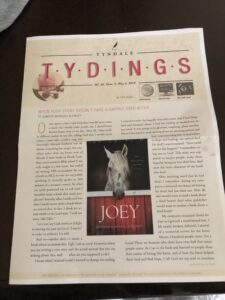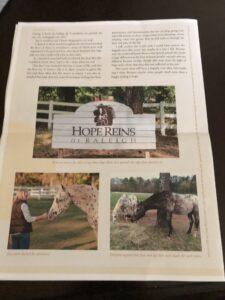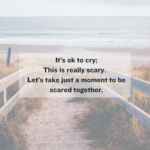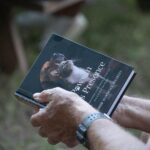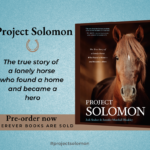When your story doesn’t have a happily-ever-after
Once upon a time I told God that I would never write a book that would make people cry.
I should have known better than to do that. After all, I also recall, at different points in my life, telling God that I would never marry a man who couldn’t sing (my amazingly talented husband can do almost everything but sing!); live anywhere other than my home state of Florida (I now reside in North Carolina); teach Vacation Bible School (I not only taught it a few times, but ended up writing VBS curriculum for our church in NC); or ever do any public speaking (I recently spoke to 300 women at a women’s event).
So what on earth possessed me to tell God I wouldn’t write a book that made people cry? Actually, what I really said was that I would never write a book where an animal dies. In fact, I think my actual words to the Lord were, “I will not write Old Yeller.”
Let’s just say God seems to delight in moving me past my list of “I wont’s” in order to embrace his will.
And so…spoiler alert…I wrote a book where an animal dies. Ugh. I am so sorry! However, when you are writing a true story and the actual animal that you are writing about dies, well…what are you supposed to do?
I know what I wanted to do! I wanted to change the ending. I wanted to write the happily-ever-after scene that I had imagined and dreamed about. I had the ending all worked out in my mind. It was going to be glorious, inspiring, cheer worthy. But as I was hard at work writing about an amazing animal and how God was using him to lead others to hope and healing, the animal died.
He died!!!
I was devastated. “How could you let this happen?” I remember crying out to God. This story was supposed to inspire people, make them hopeful, bring joy into their lives. And now the main character of the book was dead.
After receiving word that he had died, I remember closing my computer, convinced my dream of writing his story had just died too. After all, who would want to read a book about a dead horse? And what publisher would want to market a book about a dead horse?
My computer remained closed for days as I grieved a multilayered loss.
I felt numb, broken, defeated. I attended a memorial service for the horse. Almost a hundred people came! For a horse! There are humans who don’t have even have half that many people come! As I sat in the back and listened to people share their stories of loving this horse, and of how the horse helped them heal and find hope, I felt God stir my soul to continue writing. I shook the feeling off. It would be too painful, to raw, to “un-happily ever after.”
But it would be real. I heard whispered to my soul.
I chewed on those words throughout the service as I watched the faces of those in attendance—most of whom were well acquainted with grief and loss, who knew first hand that happily-ever-afters really only exists only in fairytales.
As a hundred memorial balloons dotted the clear blue sky, I suddenly I knew what I had to do—write what was real.
That day I was reminded that loss is a part of life, and that the best way to honor a life is to allow yourself to grief the loss, and share what that life meant to others.
I was also reminded that hope does not come from happy endings, but from perseverance and determination that we can keep going even when life knocks us down.
Hope comes from knowing—from trusting—that One greater than us will hold us through the hurt and pain of this life.
I will confess that I still wish I could have written the happily-ever-after scene, but maybe in a way I did. Because now the world will know about a very special animal who made a huge difference in the lives of many people—people who are different because of him. People who now share the light of hope with others that they first saw reflected in his eyes.
Not every story will have a happily ever after, but maybe that’s ok.
Because maybe what people need more than a happy ending is….hope.
Much love,
Jen


